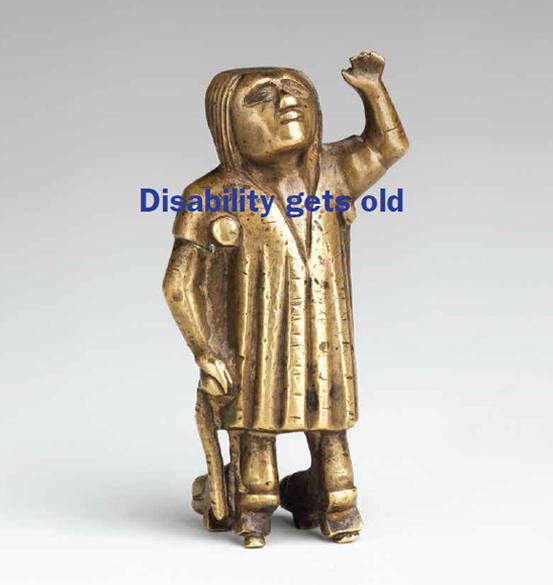Disabled people get there first – Strategies for healthy aging are hiding in plain sight
If you’ve ever wondered about the difference between the elderly and the disabled, you’ve almost certainly come to realize that the answer is shockingly obvious and remarkably simple: it’s time.
But here is the more interesting issue– as the post WWII generation ages, baby boomers are rapidly swelling the ranks of people living with various sorts of impairments. In many cases they are not people willing to be dismissed or marginalized, even as they descend into incapacity that we can neither prevent nor, as yet, fully understand.
Aging optimists take comfort from the obvious fact that decline is the consequence of good fortune—something those who don’t survive into their late decades are spared. But there is good news from a different quarter: people who have been living with difference for their entire lives have a great deal to teach these new arrivals, as families accustomed to disability discover in time.
It starts with attitude and advocacy. The cruel truth is that difference is not disability—the one is a fact and the other a perspective, a social construct. The fears, attitudes and distaste of others isolates those who are not typical. If distancing ourselves from people who are not like us was ever a sustainable strategy, it becomes quickly problematic when one in five of us lives with imperfection and the newly disabled are our those who we came to love before their time of loss.
One simple fact is becoming glaringly apparent– treating vast numbers of people with impaired memories, trouble getting around or frailty as though they are sick is a non-starter. Not only is the expense prohibitive, but the life of an invalid is narrow, and often lonely and drab.
This brings us back to the issues that people with disabilities have been living with for decades, and the ways in which the future of eldercare is likely to be shaped by their experiences and advocacy.
We of course have long lionized individuals who we see as overcoming impairments—whether it is to climb mountains, hold down a job or live independently. The time has come to move beyond admiration and actually learn from such people, understanding what their breakthroughs tell us in order to help many others thrive.
We are living longer, and it will change us in profound ways. We will take instruction from those who have been here before, and we are unlikely to ever again see difference as merely the fate of the unfortunate.
by Emma Gilsanz

